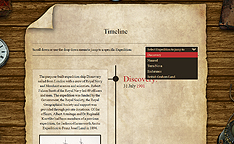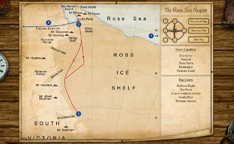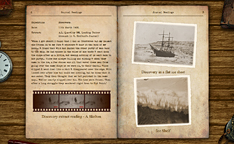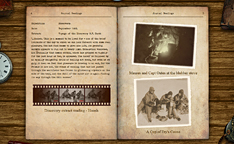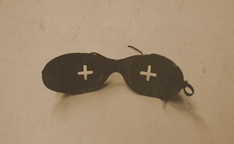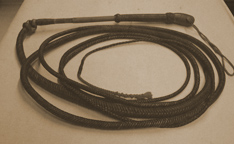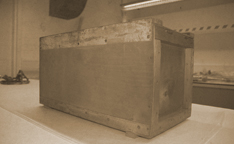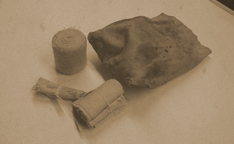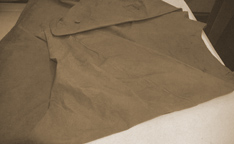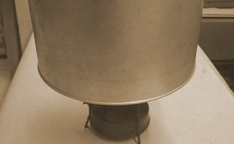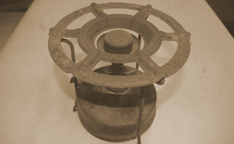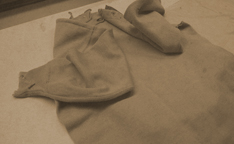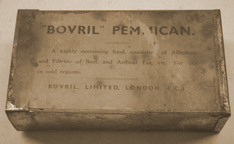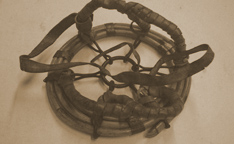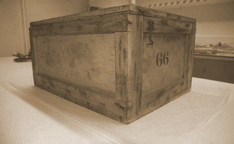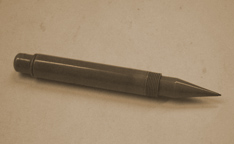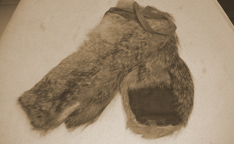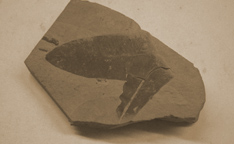British National Antarctic Expedition 1901-04 (Discovery)
Expedition Aim
The aim of the expedition was to undertake an extensive scientific survey and exploration of the Ross Sea region of Antarctica.
Summary
- Led by Robert Falcon Scott, 49 officers and men sailed on board Discovery.
- The first Antarctic balloon flight was undertaken by Captain Scott.
- One man was to perish during a sledging trip, when he fell over an ice-shelf into the sea.
- Scott, with Shackleton and Wilson, undertook a southern sledge journey. They were forced to turn back suffering from scurvy after setting a new record, reaching the furthest south of 82°17'S.
- The expedition spent two winters in the Antarctic, with Discovery frozen in the ice.
Awards from the expedition
The Silver Polar Medal with an engraved clasp 'ANTARCTIC 1902-04' was awarded to every member of the expedition who went out and remained with Discovery, as well as those who were invalided home or joined Discovery during the second winter.
They were: Captain R.F. Scott RN, Lieutenant C.W.R. Royds, RN, Sub-Lieutenant E.H. Shackleton, RNR, R. Koettlitz, R.W. Skelton, H.T. Ferrar, T. Feather, F.E. Daily, J. Cross, D. Allen, A. Pilbeam, J.W. Dell, T. S Williamson, E.E.M. Joyce, J. Handsley, G. Scott, W. Lashley, F. Plumley, C. Clarke, Lieutenant A.B. Armitage, RN, Lieutenant M. Barne, RN, Sub-Lieutenant G.F.A Mulock, RN, E.A. Wilson, T.V. Hodgson, L.C. Bernacchi, J.H. Dellbridge, C. R. Ford, E. Evans, T. Kennar, W.L. Heald, F. Wild, G.B. Croucher, S. Crean, I. Weller, A.H. Blisset, A.L. Quartley, S. Whitfield, W. Smyth ( Smyth deserted from the Royal Navy before investiture and did not receive his medal).
The Polar Medal in bronze, without a clasp was awarded to any other members of crew who did not fulfil the above conditions and to the crews of Morning and Terra Nova:
Discovery: W. McFarlane, J.D. Walker, G.T. Vince, J. Duncan, C.H. Hare.
Terra Nova: H. McKay, W.C. Souter, T. A. Shearer, A. Smith (Snr.), A. Morrell, J. Cairns, D.T. Milne, M. Strachen, A.P. Jackson, A. Sharpe, J. Grant, A. Smith (Jnr), T. Cosgrove, D. H. Frederick, J. Dair, R. Christie, A. J. Elms, W. Smith, W. Clarke, E. Morrison, C. Stainstreet, J. Reilly, J. Clarke, A. McNiel, R.W. Day, C. MacGregor, A. Aiken, J. Cooper, G. Lawrance, J. Frederick, S. Tasman.
Morning: W. Colbeck, E.R. Evans, G.A. Davidson, N. Pepper, A. Cheetham, G. Rolfe, A. Casement, G. Seary, J.A. Chester, F. Kemp, R.G. England, G.S. Doorly, J.D. Morrison, M. Somerville, G. Bilsby, J.T. Good, F.W. Burton, O. Riley, L. Burgess, W. Hender. J. Paton, A. Beaumont, W. Marsh, D. Nelson.
The Royal Geographic Society awarded Robert Falcon Scott a special medal named The Scott Medal (1904, for his leadership during the expedition. He was also given The Patron's Medal, on which was inscribed:
'For services as leader of the National Antarctic Expedition, and for his great sledge journey to 82° 17' S''
Life after the expedition
Several of the crew members continued to explore the Antarctic on other expeditions. Ernest Shackleton's expeditions in 1907–09 and 1914–16 failed to achieve their primary goals, of reaching the South Pole and crossing the Antarctic Continent, but resulted in increased scientific knowledge. Dr Edward Wilson returned to Antarctica with Captain Scott during the Terra Nova Expedition (1910–13) and perished with Scott on their return from the South Pole. Frank Wild returned to Antarctica four times with Douglas Mawson and Ernest Shackleton. Teddy Evans RN achieved fame as 'Evans of the Broke' when he led an attack on German ships during WWI.
